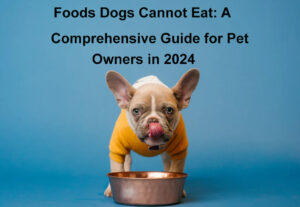As a responsible dog owner, ensuring your furry friend’s health and well being is a top priority. One essential aspect of this responsibility is understanding what foods are safe for dogs and which ones can pose serious health risks. While many foods are perfectly safe and nutritious for dogs, there are also several that can be harmful or even toxic. In this article, we’ll explore the foods dogs cannot eat, the potential health risks associated with them, and tips for keeping your pet safe.

Common Foods Dogs Cannot Eat
Read Also:Ibomma Telugu Movies
1. Chocolate
Chocolate is one of the most well-known foods that dogs cannot eat. It contains theobromine and caffeine, both of which are toxic to dogs. The darker the chocolate, the higher the concentration of these harmful compounds. Even small amounts can lead to symptoms like vomiting, diarrhea, rapid heart rate, and, in severe cases, seizures or death. If your dog ingests chocolate, it’s crucial to contact your veterinarian immediately.
2. Onions and Garlic
Onions and garlic belong to the Allium family and are toxic to dogs. They can cause oxidative damage to red blood cells, leading to anemia. Symptoms may include weakness, lethargy, vomiting, and abdominal pain. Even small amounts can be harmful, so it’s best to avoid giving your dog any foods that contain onions or garlic, whether raw, cooked, or powdered.
3. Grapes and Raisins
Grapes and raisins are highly toxic to dogs, although the exact substance responsible for the toxicity is still unknown. Ingestion can lead to kidney failure, which can be fatal. Symptoms often include vomiting, diarrhea, lethargy, and loss of appetite. If you suspect your dog has eaten grapes or raisins, seek veterinary attention immediately.
4. Avocado
While avocados are a nutritious food for humans, they contain persin, which can be toxic to dogs in large amounts. Persin can cause gastrointestinal upset and, in some cases, fluid accumulation around the heart. It’s best to keep avocados out of your dog’s diet entirely.
5. Alcohol
Alcohol is extremely dangerous for dogs. Even small amounts can lead to intoxication, resulting in symptoms such as vomiting, diarrhea, difficulty breathing, and coordination problems. In severe cases, alcohol poisoning can be fatal. Always ensure that your dog does not have access to alcoholic beverages.
6. Caffeine
Like chocolate, caffeine is harmful to dogs due to its stimulating effects. Consuming caffeine can lead to restlessness, rapid breathing, heart palpitations, and muscle tremors. Keep coffee, tea, and caffeinated energy drinks away from your dog to avoid accidental ingestion.
7. Xylitol
Xylitol is a sugar substitute commonly found in sugar-free gum, candy, and some baked goods. It is highly toxic to dogs, causing a rapid insulin release that can lead to hypoglycemia (low blood sugar). Symptoms may include vomiting, loss of coordination, seizures, and even liver failure. If your dog ingests xylitol, contact your veterinarian immediately.
8. Macadamia Nuts
Macadamia nuts are toxic to dogs, causing symptoms such as weakness, vomiting, tremors, and hyperthermia. Even small amounts can lead to these adverse effects, so it’s best to avoid giving your dog any nuts, especially macadamia.
9. Raw or Undercooked Meat, Eggs, and Fish

While some pet owners advocate for raw diets, there are risks associated with feeding dogs raw or undercooked meat, eggs, and fish. These foods can carry harmful bacteria like Salmonella or E. coli, which can lead to severe gastrointestinal illness. Additionally, raw egg whites contain avidin, which can interfere with biotin absorption, leading to skin and coat issues.
10. Certain Dairy Products
Many dogs are lactose intolerant, meaning they cannot properly digest lactose, the sugar found in milk and dairy products. While small amounts of cheese or yogurt may be safe for some dogs, large quantities can cause gastrointestinal upset, including diarrhea and vomiting. It’s best to limit dairy products in your dog’s diet.
Read Also: The Best Basenji Yodels – Best Guide 2022
Tips for Keeping Your Dog Safe

- Educate Yourself: Familiarize yourself with common foods that are toxic to dogs. Knowing what to avoid is the first step in preventing accidental ingestion.
- Read Labels: Always check ingredient labels when purchasing food or treats for your dog. Be wary of products that may contain harmful ingredients like xylitol or artificial sweeteners.
- Keep Human Food Out of Reach: Make sure to store all human food securely and keep it out of your dog’s reach. This includes foods that may be left unattended on countertops or tables.
- Be Cautious During Meal Prep: When cooking, be mindful of scraps and leftovers that may fall on the floor. Clean up immediately to prevent your dog from snacking on anything harmful.
- Consult Your Veterinarian: If you’re unsure about certain foods or if your dog has ingested something they shouldn’t have, always consult your veterinarian for guidance.
What to Do If Your Dog Eats Something Toxic

If you suspect your dog has consumed a toxic food, it’s essential to act quickly:
- Contact Your Veterinarian: Call your veterinarian or an emergency pet clinic for advice on the next steps. Provide details about what your dog ate, how much, and when it happened.
- Do Not Induce Vomiting Without Guidance: Inducing vomiting can sometimes be beneficial, but it should only be done under the advice of a veterinarian.
- Keep the Packaging: If your dog ate a packaged food item, keep the packaging handy to provide information on ingredients and potential toxins.
Conclusion

Understanding what foods dogs cannot eat is crucial for keeping your furry friend safe and healthy. By familiarizing yourself with harmful substances and taking precautions, you can help prevent accidents and ensure your dog leads a happy, healthy life. Always consult your veterinarian if you have any concerns about your dog’s diet or health.
Read Also: When Is An Aussiedoodle Full Grown – Best Guide in 2022